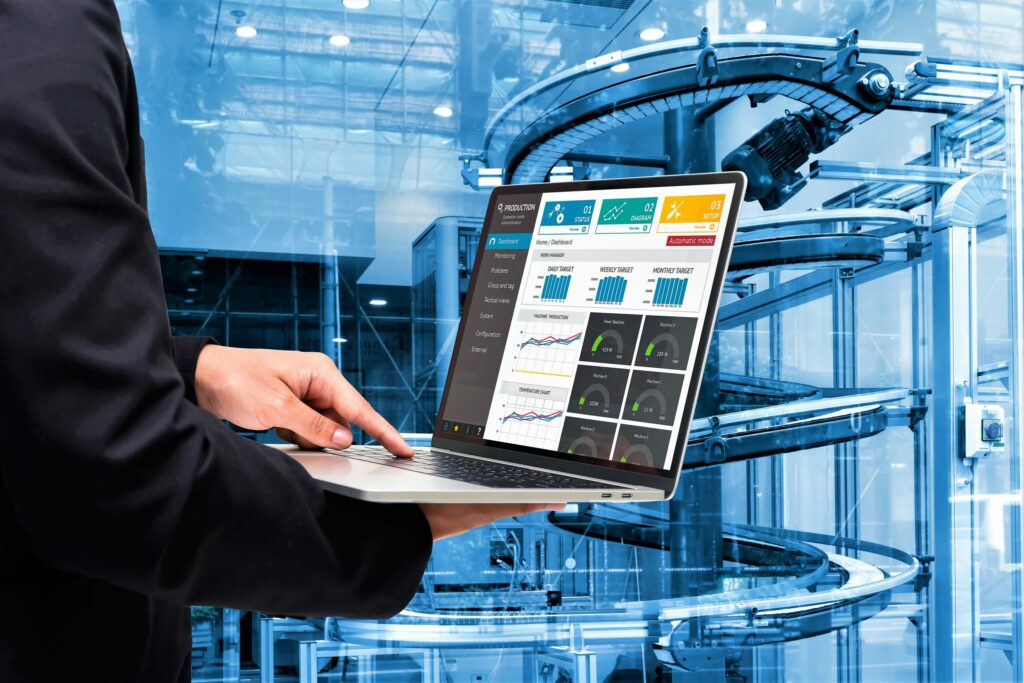Choosing the Right ERP Software: Factors to Consider for Your Business
ERP, or Enterprise Resource Planning, is more than just a buzzword in modern business; it’s a critical pillar supporting the framework of efficient, data-driven operations. Whether you’re a startup seeking to establish streamlined processes or an established corporation aiming to enhance productivity, the ERP software system you choose can be a game-changer. But with a myriad of options available, how can you ensure you’re selecting the best fit for your unique business needs?
In this comprehensive guide, we’ll walk you through the crucial factors to weigh when making this pivotal decision. From aligning software capabilities to your business’s current and future requirements, to assessing costs and usability, we’ll explore everything you need to know about choosing the right ERP software for your business.
Understanding Your Business Needs
Before you can even begin to explore the various ERP systems on the market, a detailed and thorough understanding of your business needs is essential. This means taking a deep dive into your company’s processes, identifying areas where efficiency can be improved, and understanding the specific challenges your business faces. Evaluate your business’s size, the complexity of your operations, and future growth plans. Consider questions such as, “What processes do we need to streamline?” and “What specific functionalities and features do our operations require?”
By establishing a clear picture of your current situation and where you aim to be, you’ll be better equipped to choose an ERP system that aligns with your business objectives and scales with your growth. Remember, the right ERP system can streamline operations, enhance efficiency, and pave the way for future success.

Scalability and Flexibility
Choosing an ERP system that is both scalable and flexible is crucial for adapting to the evolving landscape of your business. Scalability doesn’t just mean the ability to handle growth in terms of transaction volumes or adding more users; it also encompasses the ERP’s capability to integrate new functionalities, modules, or businesses without significant disruptions. A scalable ERP solution ensures that as your business expands—whether through increased sales, new markets, or acquisition of other companies—the system can accommodate and support these changes efficiently.
Flexibility, on the other hand, refers to the ERP’s ability to adapt to your unique business processes rather than forcing you to conform to a rigid set of functionalities. This means having an ERP system that offers customization options to meet your specific operational needs, while also being user-friendly enough to allow you to make adjustments as your processes evolve. An ERP system that provides scalability and flexibility is essential for sustaining long-term growth and maintaining a competitive edge in your industry.
Integration Capabilities
An equally crucial aspect to consider when selecting an ERP system is its capability to integrate seamlessly with your existing tools and applications. In today’s technology-driven business environment, the ability for different software systems to work together without friction is vital. A well-chosen ERP should effortlessly connect with your current CRM, HRM, supply chain management tools, or any specialized software your business relies on.
Effective integration ensures that data flows smoothly between systems, eliminating the need for manual data entry and reducing the risk of errors. It also allows for more comprehensive analytics and reporting, giving you a 360-degree view of your business operations. When evaluating ERP systems, look for those that offer robust API support and pre-built connectors for popular business applications. This will not only streamline implementation but also significantly enhance the efficiency and agility of your business processes.
Cost and ROI Analysis
When investing in an ERP system, it’s critical to consider not just the upfront costs but also the long-term return on investment (ROI). Analyzing the cost involves looking beyond the purchase price to understand the total cost of ownership, which includes implementation, ERP training, customization, maintenance, and support costs. A thorough cost analysis will help you identify the ERP system that offers the best value for money, taking into account both initial investment and ongoing expenses.
Equally important is evaluating the potential ROI of the ERP system. This means assessing how the system can contribute to reducing operational costs, improving productivity, and driving revenue growth over time. A high-quality ERP system should enable more efficient processes, reduce manual labor through automation, and provide actionable insights that help in making data-driven decisions. While calculating precise ROI can be challenging due to the qualitative benefits of an ERP system, considering factors such as improved efficiency, cost savings, and potential revenue growth will offer a clearer picture of the system’s value to your business. By carefully weighing both the costs and the anticipated ROI, you can make a more informed decision that aligns with your company’s financial health and growth objectives.
User-Friendliness and Training
The ease of use of an ERP system, often referred to as user-friendliness, plays a critical role in its successful adoption and operation within a company. A user-friendly ERP system minimizes the learning curve for employees, enabling them to quickly become proficient in its use. This leads to higher productivity and a more seamless transition during the implementation phase. Key features to look for in a user-friendly ERP system include an intuitive interface, a coherent dashboard that aggregates relevant information, and straightforward navigation tools that facilitate easy access to essential functionalities.
Training is another fundamental component to consider when implementing an ERP system. Comprehensive training programs are essential to ensure that your staff are fully equipped to utilize the system’s features effectively. A good ERP provider should offer extensive training resources, such as tutorials, workshops, one-on-one sessions, and online support materials. Furthermore, consider the accessibility and availability of ongoing training, as this will help address any future questions or needs as your company evolves and as new features are released. A robust training program not only enhances user adoption rates but also empowers your team to leverage the full potential of the ERP system to achieve your business objectives.

Security and Compliance
Security and compliance are paramount when implementing an ERP system, as these platforms often process and store sensitive company and customer data. A comprehensive ERP solution should offer robust security features to safeguard against data breaches, unauthorized access, and other cyber threats. This includes encryption of data, both at rest and in transit, strong user authentication mechanisms, and regular security audits.
Equally critical is the system’s ability to comply with relevant regulatory standards and data protection laws, such as GDPR in Europe or HIPAA in the United States, depending on your business’s location and operation scope. Failure to comply with these regulations can result in significant financial penalties and damage to your company’s reputation. Therefore, when selecting an ERP system, ensure that it not only meets current security and compliance requirements but is also capable of adapting to future legislation changes.
By prioritizing security and compliance in your ERP selection, you mitigate risks to your business and reassure stakeholders of your commitment to data protection and regulatory adherence.
Vendor Reputation and Support
When selecting an ERP system, the reputation and support offered by the vendor are critical factors that should not be overlooked. A vendor with a solid reputation in the market is likely an indicator of a reliable and effective ERP system. Researching and reading reviews from current and past users can provide valuable insights into the system’s performance and the vendor’s responsiveness to customer needs.
Support from the vendor is equally important, as it ensures that any issues your company encounters with the ERP system can be quickly and efficiently resolved. Look for vendors that offer comprehensive support plans, including 24/7 assistance, a variety of contact methods (such as phone, email, and chat), and a promise of prompt response times. Additionally, consider the vendor’s commitment to the ongoing development of their ERP system, including regular updates and improvements. A vendor that actively listens to customer feedback and is dedicated to evolving their product will be a valuable partner in supporting your company’s growth over time.
In conclusion, investing in an ERP system requires careful consideration of factors such as cost and ROI analysis, user-friendliness and training, security and compliance, and vendor reputation and support. By taking a holistic approach to evaluating potential ERP systems, you can make an informed decision that aligns with your business needs and goals for long-term success.

